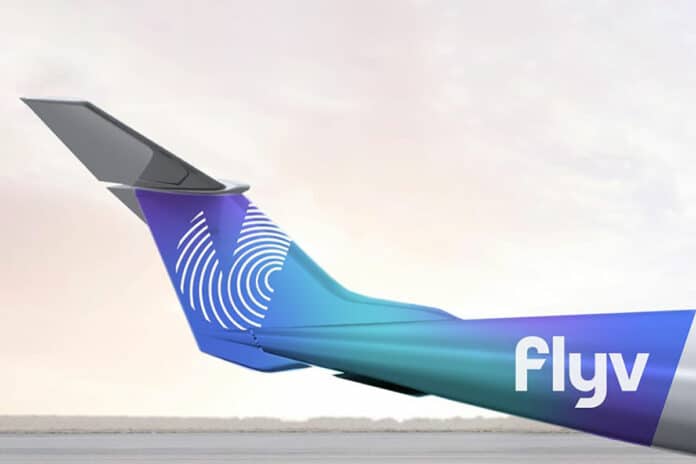Aviation companies worldwide are taking steps to tackle the limitations of conventional travel systems and finding ways to increase services while reducing operating costs.
In a similar effort, ZeroAvia and Flyv partnered up to explore the use of hydrogen-electric engines to power Flyv’s on-demand and low-cost flight operations.
Flyv is trying to address the challenges faced by traditional travel systems due to growing demand. The company plans to use AI to match demand and availability to enable flexible booking for passengers. It also plans to operate small aircraft carrying around ten passengers to make better use of under-utilized airfields. And with the use of cleaner technology, they can reduce operating costs and explore zero-emission designs.
On the other hand, ZeroAvia is making progress in its quest to certify a 600kW (ZA600) hydrogen-electric engine that can power 9-19 seat aircraft with only fuel cell energy. The company aims to enter the market with ZA600 in about two years.
As part of the deal, ZeroAvia and Fly will investigate regional air mobility networks across Europe, exploring the possible economic and passenger benefits of adopting fuel-cell-powered flights.
“Flying can be the cleanest, quickest, and cheapest way to travel in the near future, given the rapid progress of zero-emission propulsion technology. It’s exciting to work with an innovative start-up airline like flyv that is rethinking the status quo to extend the benefits of flying,” said James Peck, Chief Customer Officer, ZeroAvia.
“As a low-cost, on-demand airline, we are proactively analyzing how to enhance efficiency and operational stability in a rapidly evolving world,” said Anton Lutz, Co-Founder of Flyv. “With policies across the EU steadily making operating fossil fuel flights more costly and difficult, it is crucial for us to align with partners like ZeroAvia today to prepare for a truly sustainable future. With ZeroAvia’s recent successes in engine development and testing, the feasibility of this innovative approach is clearer than ever.”
ZeroAvia aims to lead the way in zero-emission aviation, providing a hydrogen-electric engine in every aircraft as a solution to address the industry’s climate impact. They plan to start by offering engines that support a range of 300 miles in 9-19 seat aircraft by the end of 2025 and a 700-mile range in 40-80 seat aircraft by 2027.
ZeroAvia has secured experimental certificates from the FAA and CAA to test their engines in three separate testbed aircraft and has achieved significant flight test milestones.
Since last year, ZeroAvia has been conducting flight tests of its ZA600 prototype on a Dornier 228 aircraft at its UK base in Kemble, Gloucestershire. The hydrogen-electric engine uses hydrogen in fuel cells to produce electricity, which then powers electric motors that spin the propellers of the aircraft. The only emission from this process is water.
